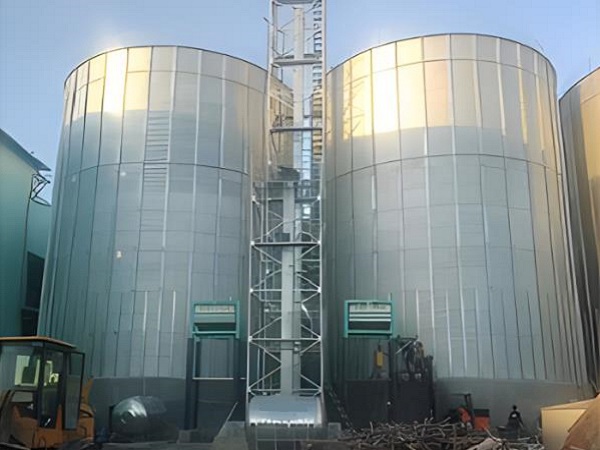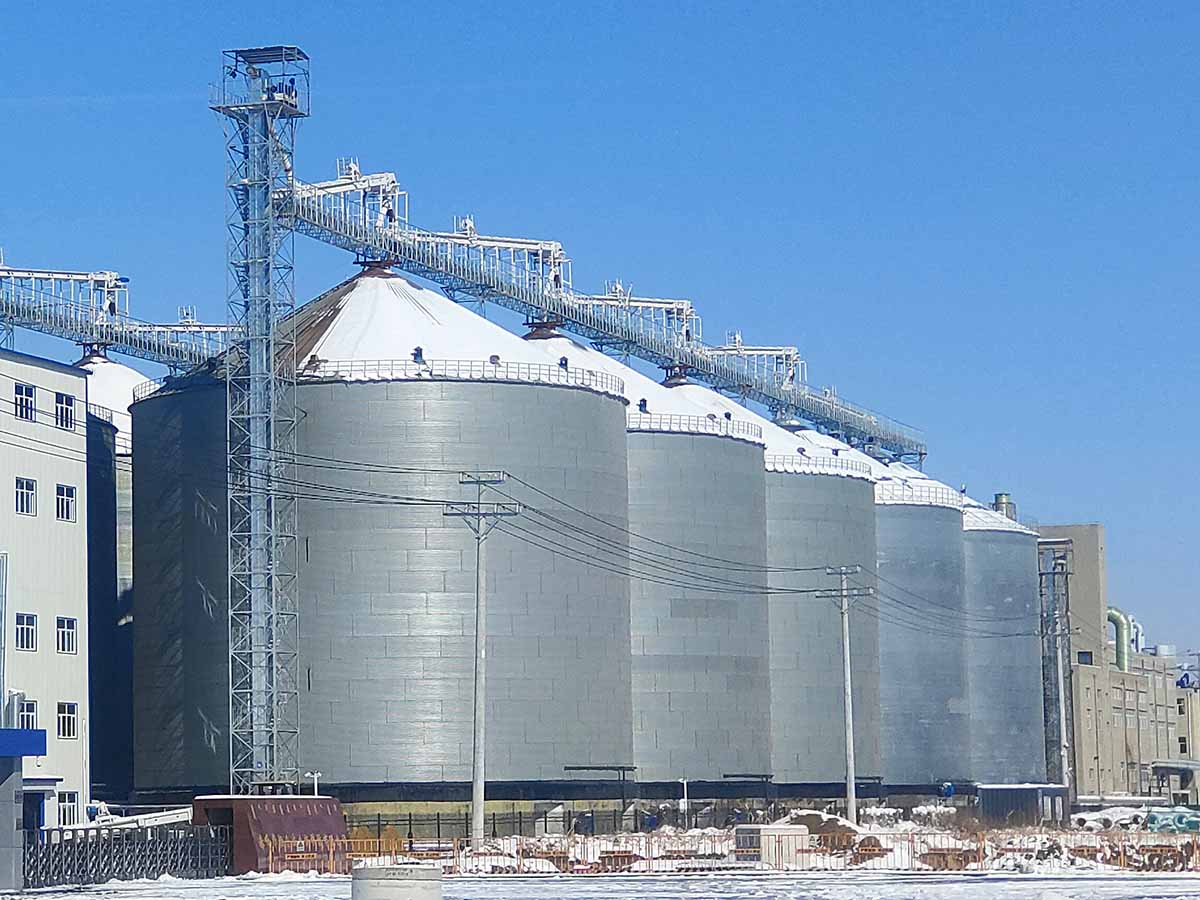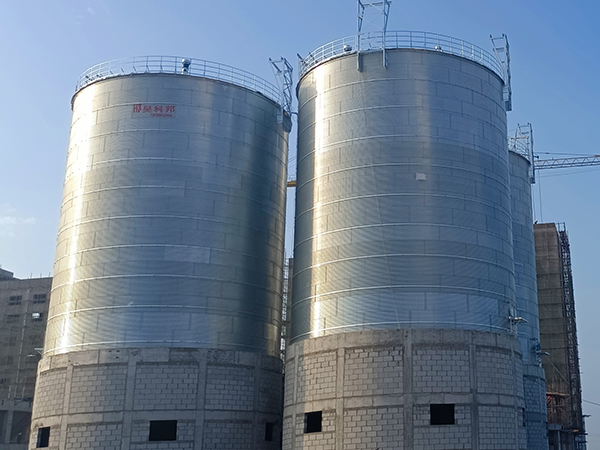Corn seed silo
Corn seed silo are agricultural facilities specifically designed for the storage of corn seeds. Their primary purpose is to provide a controlled
Corn seed silo Introduction
Corn seed silo are agricultural facilities specifically designed for the storage of corn seeds. Their primary purpose is to provide a controlled environment for the seeds, maintaining their quality and viability, and ensuring good germination rates and growth potential during planting. The construction and management of corn seed silo are crucial for agricultural production as they not only guarantee the quality and quantity of seeds but also provide a stable supply of seeds for the planting season, thereby supporting the sustainable development of agriculture and food security.
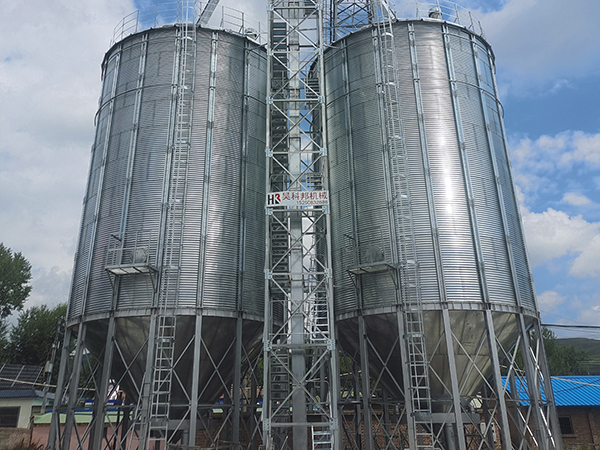
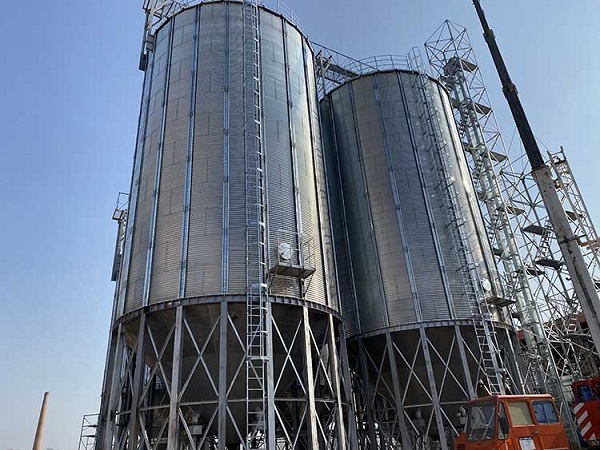
Corn seed silo features
Specialized Design
They are engineered specifically to meet the storage requirements of corn seeds, ensuring optimal conditions are maintained during storage.
Environmental Control
The silos maintain ideal conditions by precisely controlling temperature, humidity, and ventilation within, preserving seed viability and extending its lifespan.
Corrosion-Resistant Materials
Silos are typically constructed from materials that resist corrosion and weathering, protecting the seeds from environmental damage.
Sealing Performance
Effective sealing prevents the ingress of moist air and pests, ensuring seeds are stored in a dry and clean environment.
Ease of Loading and Unloading
The design of the silos takes into account the efficiency of seed loading and unloading, equipped with convenient access points and mechanized loading and unloading equipment.
Monitoring System
Modern silos are fitted with monitoring systems that provide real-time surveillance of the seed’s condition and the environmental conditions inside the silo.
Fire Safety
The silos incorporate necessary fire prevention measures to protect against damage from fire to both the seeds and the facility.
Easy to Clean and Maintain
The silo design facilitates cleaning and maintenance work, ensuring the storage environment remains hygienic and prolonging the lifespan of the silo.
Scalability
The design of the silos allows for future expansion to accommodate changing storage needs.
Space-Saving
The vertical structure of the silos effectively utilizes space, enabling the storage of a larger quantity of seeds on limited land.
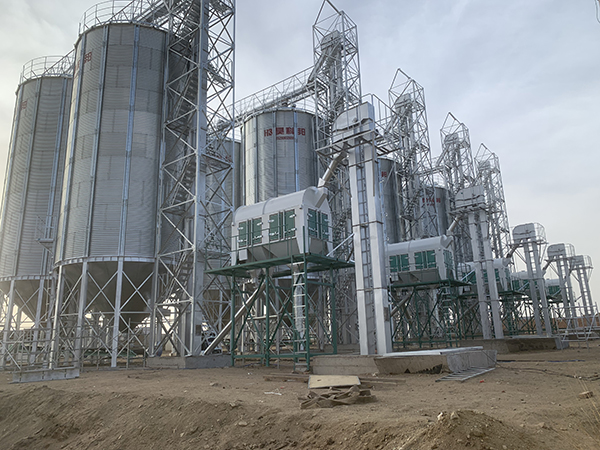
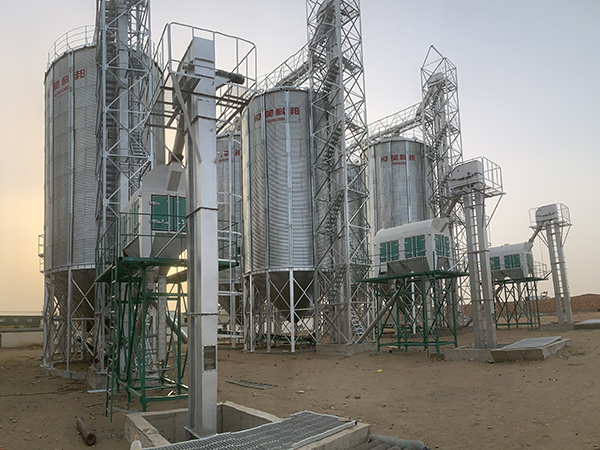
Corn seed silo structure
Silo Shell
This forms the external structure of the silo, typically made of metal (such as steel or aluminum) or concrete to provide a sturdy and durable shell. The shell is designed in a cylindrical or rectangular shape to maximize space utilization and structural stability.
Base Structure
The base of the silo is engineered with a support structure to ensure the stability of the entire silo. The base usually features a ventilation system to promote air circulation and prevent the seeds at the bottom from molding due to moisture.
Top Structure
The top of the silo may include a cover or canopy to protect the seeds from rainwater and direct sunlight. The top may also have ventilation openings or equipment to help regulate air circulation within the silo.
Ventilation System
To control the temperature and humidity within the silo, an efficient ventilation system is installed. This system may include fans, vents, and adjustable ductwork.
Loading and Unloading System
For easy ingress and egress of seeds, the silo is equipped with a dedicated loading and unloading system, such as screw conveyors, belt conveyors, or pneumatic conveying systems.
Temperature and Humidity Control System
To maintain optimal storage conditions for the seeds, the silo may be fitted with a temperature and humidity control system, including heaters, coolers, and humidifiers.
Monitoring and Control System
Modern silos may include an integrated monitoring and control system for real-time surveillance of environmental parameters within the silo, such as temperature, humidity, and gas concentrations, with automatic adjustments as needed.
Internal Partitions
To better manage and protect the seeds, the interior of the silo may have partition walls or dividers to separate different seed batches or types.
Safety Features
The silo design incorporates safety features, such as fire protection systems, pest control, and rodent prevention measures, to ensure the safety of the seeds.
Cleaning System
To maintain the hygiene within the silo, a cleaning system may be installed to facilitate cleaning and sanitizing during seed loading and unloading.
These structural components work together to ensure that corn seeds are optimally protected during storage and also facilitate the management and use of the seeds.

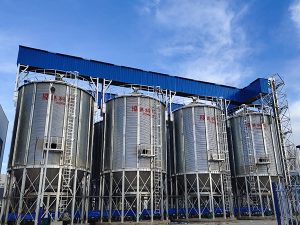
Corn seed silo advantages
Enhancing Seed Quality
By controlling the environmental conditions within the silo, such as temperature, humidity, and ventilation, the quality of seeds can be significantly improved, and their viability maintained, ensuring a high germination rate during planting.
Extending Seed Lifespan
Storage in a controlled environment reduces natural seed loss, extending its lifespan and providing farmers with a stable and long-term seed supply.
Preventing Seed Contamination
The design of the silo effectively isolates external contaminants such as dust, pests, and pathogens, protecting the seeds from pollution and ensuring their purity.
Increasing Storage Efficiency
The structural design of the silo makes the process of loading, unloading, and handling seeds more efficient, reducing the consumption of labor and time, and improving overall work efficiency.
Saving Space
The vertical design of the silo makes full use of space, allowing for the storage of more seeds on limited land, especially suitable for areas with scarce land resources.
Facilitating Management
Modern silos are often equipped with automated monitoring and control systems, enabling management personnel to easily monitor the environment and seed status within the silo and make timely adjustments.
Reducing Losses
By minimizing losses of seeds during storage and handling, silos contribute to improving the economic benefits of agricultural production.
Strong Adaptability
Silos can be designed and adjusted according to different climatic and environmental conditions, demonstrating strong adaptability to meet various agricultural production needs.
Ensuring Food Security
By ensuring the quality and supply of seeds, silos provide a stable source of seeds for agricultural production, aiding in the safeguarding of food security and sustainable agricultural development.
Environmental Protection
Centralized storage of seeds reduces environmental impact, decreases the use of pesticides and fertilizers, and promotes green agricultural development.
In summary, corn seed silo offer significant advantages in enhancing seed quality, extending seed lifespan, preventing contamination, increasing storage efficiency, saving space, facilitating management, reducing losses, ensuring food security, and protecting the environment.
Application scope of Corn seed silo
Coban Silo is widely used for grain storage such as wheat, corn, soybean, paddy, rice, soybean meal, barley, malt, sunflower seeds, rapeseed, peanuts, flour, and other powder materials, oat, special Silo, and seeds, etc.
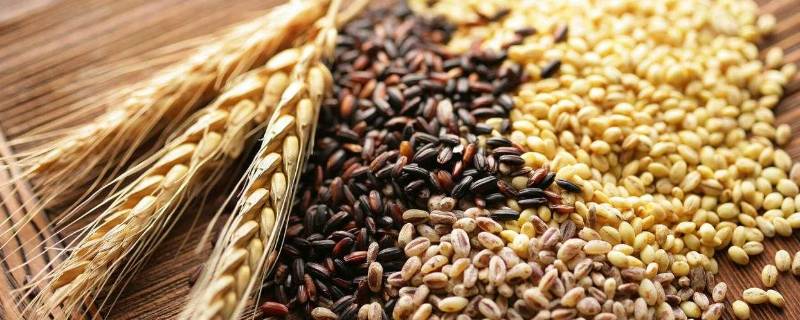
Corn seed silo technical parameters
Scientifically speaking, the Silo capacity should be measured with volume (m3). Even in the same grain Silo, the storage tons will be different for different grains with different densities. The following table is calculated based on a Silo density of 0.75kg/m3, and surely HKB customizes Silo systems unique for you.
| Most Popular Hopper Bottom Steel Silo Technical Specifications | ||||||||
| Capacity | 50Ton | 100Ton | 150Ton | 200Ton | 300Ton | 500Ton | 1000Ton | 1500Ton |
| Model | TCZK
03605 |
TCZK
04507 |
TCZK
05507 |
TCZK
06406 |
TCZK
07307 |
TCZK
07313 |
TCZK
11010 |
TCZK
12811 |
| Diameter(m) | 3.667 | 4.584 | 5.500 | 6.417 | 7.334 | 7.334 | 11.000 | 12.834 |
| Total Height(m) | 9.56 | 12.53 | 13.25 | 12.85 | 14.70 | 21.42 | 20.95 | 23.51 |
| Volume(m³)
Density:0.75ton/m³ |
69 | 150 | 222 | 273 | 415 | 699 | 1346 | 2039 |
| Most Popular Flat Bottom Steel Silo Technical Specifications | ||||||||
| Capacity | 1000Ton | 1500Ton | 2000Ton | 2500Ton | 3000Ton | 5000Ton | 8000Ton | 10000Ton |
| Model | TCK
10014 |
TCK
11915 |
TCK
13715 |
TCK
15514 |
TCK
15518 |
TCK
18321 |
TCK
24718 |
TCK
25621 |
| Diameter(m) | 10.084 | 11.918 | 13.750 | 15.584 | 15.584 | 18.334 | 24.751 | 25.668 |
| Total Height(m) | 18.69 | 20.34 | 20.87 | 20.30 | 24.78 | 28.60 | 26.99 | 30.60 |
| Volume(m³)
Density: 0.75ton/m³ |
1335 | 2009 | 2701 | 2467 | 4145 | 6693 | 10879 | 13484 |


